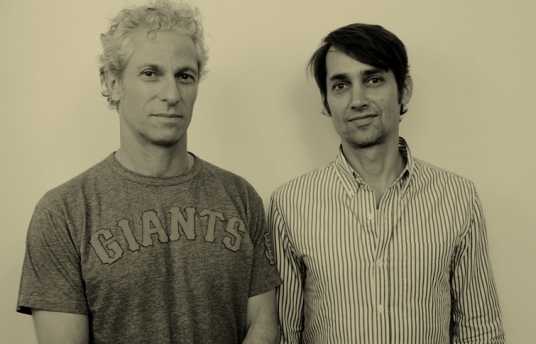People in Film: Scott McGehee and David Siegel
Feb 05, 2013

Directors Scott McGehee and David Siegel have been collaborating on unique films for over two decades, creating everything from black and white experimental films to unconventional love stories. Their recent film, ‘What Maisie Knew’ premiered at the Toronto International Film Festival and also screened in Doha at DTFF 2012. Capturing the essence of Henry James’ classic, the directing duo created a compelling narrative that shows the perspective of a young child caught in a world of love and turmoil. DFI’s editorial team recently caught up with the directors to discuss their filmmaking and latest project.
DFI: As a team you have collaborated on five films together, how do you delineate the work?
Scott McGehee: When asked that question we always start out by saying that we didn’t go to film school, we figured out how to make movies together as a working process from the ground up. Through that process we developed a way of sharing duties, we write together, we plan together. Once we are on set, we have storyboarded very carefully; we are big planners, David usually takes a more forward position working with the camera and actors, I take more of a back of house type position. But none of this is very set in stone; we both know what needs to be done.
David Siegel: It is not so different from the way we hear the Cohen brothers work. But we are not technically brothers—we just act like it.
DFI: What were the challenges of drawing upon Henry James’ work for your film?
David Siegel: It was a good thing that it was a script and not the actual book. We didn’t write the script it was brought to us. You know that it is an elliptically told story because it captures the child’s perspective. From our point of view when we read the script, it wasn’t so much the details of the narrative as it was figuring out how to tell the story from a child’s perspective and make this elliptical storytelling work. It was a challenge both in terms of the process of shooting and cutting. We both really enjoy the process of trying to figure it out. It is technically an adaptation of the book, but it is more like an acknowledgment of the original work.
Scott McGehee: Neither of us had read the book, because it is an obscure title of James, so we read the novel wondering if it was going to be an asset for us as filmmakers. It didn’t add a lot and we wouldn’t run to the book when we were in trouble and ask, ‘What would Henry James Do?’ But it was interesting how James discovered the story. The starting point for James was that he heard about this notion of split custody at a dinner party, and he thought that sharing a child was such an outlandish idea, that he wrote this kind of satirical take from the kid’s point of view. Now it is totally different as split custody is now the norm. The characterisations that he started with were actually really strong, I think that he was a very good observer of human nature, and what motivates people when they hate each other. A lot of the elements that James captured were incorporated into the performances of our actors – and are still relevant today.
DFI: What were the difficulties of directing such a young actor?
David Siegel: Onata was such a blessing; we didn’t find her until a few weeks before we started shooting. Our casting director seemed to be very calm about it. We were very nervous. I catch myself sometimes because it might sound like I am exaggerating; she is just a remarkable, remarkable kid. We didn’t need to train Onata, she just had this natural ability to relax and live in front of the camera. Her mother would often prepare her, not coacher how to act. She was just giving Onata a sense of the scenes and tried to help her remember the lines. That is what we would do with her, just explain the situation and let her be—she could live that pretend experience with the other actors.
Scott McGehee: The other actors were a big part of this process as we talked to them from the beginning, especially Alexander Skarsgård and Julian Moore, they are both good with kids. They both understood that it was part of their job to help create an environment and relationship that Onata could feel comfortable in and draw from. I think helping Onata to stay in a live, reactive environment was very helpful.
DFI: In terms of your filmmaking where do you see your craft going in the future?
David Siegel: Not to sound completely crass, but we would like to make more films than we have made. We often say that we haven’t made as many films as we would like to, there are projects that we couldn’t get off the ground because of one reason or another. We are looking to up the pace a little bit. We have a couple of scripts of ours that we are looking into revitalising, and we are looking around for new projects.
DFI: Would you ever be interested in making films in the Middle East?
Scott McGehee: We had a project that was originally set in Italy and there was something un-inspiring about this story, so we were looking for something else. At that time we did a little tour and looked at Moscow, Budapest and Berlin, finally we looked at Istanbul–and it really captured our imagination. Unfortunately, this project didn’t come together; this is one of the things we are talking about revitalising. Ultimately, we are very interested in trying to do something in this part of the world.